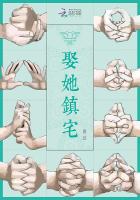Equability of tone is best attained by the exclusive use of familiar and idiomatic words. But great care must be taken; for an idiomatic phrase, if an exception to the general style, is of itself a disturbing element. No word, however expressive and exact, should be employed, which makes the reader stop to think, or unduly attracts attention by difficulty and peculiarity, or disturbs the effect of the surrounding language. In general the style of one author is not appropriate to another; as in society, so in letters, we expect every man to have 'a good coat of his own,' and not to dress himself out in the rags of another. (a) Archaic expressions are therefore to be avoided. Equivalents may be occasionally drawn from Shakspere, who is the common property of us all; but they must be used sparingly. For, like some other men of genius of the Elizabethan and Jacobean age, he outdid the capabilities of the language, and many of the expressions which he introduced have been laid aside and have dropped out of use. (b) A similar principle should be observed in the employment of Scripture. Having a greater force and beauty than other language, and a religious association, it disturbs the even flow of the style. It may be used to reproduce in the translation the quaint effect of some antique phrase in the original, but rarely; and when adopted, it should have a certain freshness and a suitable 'entourage.' It is strange to observe that the most effective use of Scripture phraseology arises out of the application of it in a sense not intended by the author. (c) Another caution: metaphors differ in different languages, and the translator will often be compelled to substitute one for another, or to paraphrase them, not giving word for word, but diffusing over several words the more concentrated thought of the original. The Greek of Plato often goes beyond the English in its imagery: compare Laws, (Greek); Rep.; etc. Or again the modern word, which in substance is the nearest equivalent to the Greek, may be found to include associations alien to Greek life: e.g. (Greek), 'jurymen,' (Greek), 'the bourgeoisie.' (d) The translator has also to provide expressions for philosophical terms of very indefinite meaning in the more definite language of modern philosophy. And he must not allow discordant elements to enter into the work. For example, in translating Plato, it would equally be an anachronism to intrude on him the feeling and spirit of the Jewish or Christian Scriptures or the technical terms of the Hegelian or Darwinian philosophy.
(7) As no two words are precise equivalents (just as no two leaves of the forest are exactly similar), it is a mistaken attempt at precision always to translate the same Greek word by the same English word. There is no reason why in the New Testament (Greek) should always be rendered 'righteousness,' or (Greek) 'covenant.' In such cases the translator may be allowed to employ two words--sometimes when the two meanings occur in the same passage, varying them by an 'or'--e.g. (Greek), 'science' or 'knowledge,' (Greek), 'idea' or 'class,' (Greek), 'temperance' or 'prudence,'--at the point where the change of meaning occurs. If translations are intended not for the Greek scholar but for the general reader, their worst fault will be that they sacrifice the general effect and meaning to the over-precise rendering of words and forms of speech.
(8) There is no kind of literature in English which corresponds to the Greek Dialogue; nor is the English language easily adapted to it. The rapidity and abruptness of question and answer, the constant repetition of (Greek), etc., which Cicero avoided in Latin (de Amicit), the frequent occurrence of expletives, would, if reproduced in a translation, give offence to the reader. Greek has a freer and more frequent use of the Interrogative, and is of a more passionate and emotional character, and therefore lends itself with greater readiness to the dialogue form. Most of the so-called English Dialogues are but poor imitations of Plato, which fall very far short of the original. The breath of conversation, the subtle adjustment of question and answer, the lively play of fancy, the power of drawing characters, are wanting in them. But the Platonic dialogue is a drama as well as a dialogue, of which Socrates is the central figure, and there are lesser performers as well:--the insolence of Thrasymachus, the anger of Callicles and Anytus, the patronizing style of Protagoras, the self-consciousness of Prodicus and Hippias, are all part of the entertainment. To reproduce this living image the same sort of effort is required as in translating poetry. The language, too, is of a finer quality; the mere prose English is slow in lending itself to the form of question and answer, and so the ease of conversation is lost, and at the same time the dialectical precision with which the steps of the argument are drawn out is apt to be impaired.














